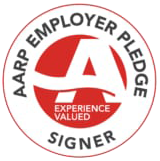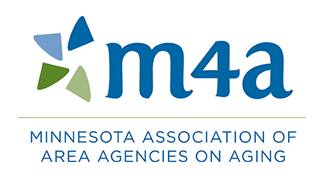How Alzheimer’s Disease Affects People
There are over 100 types of dementia, even juvenile dementias. Alzheimer’s Disease is the most common type of dementia,1 accounting for about 60-70% of cases.2
Alzheimer’s is a progressive brain disease that causes problems with thinking and planning, memory loss, and behavior.3 At this time, there is no cure for Alzheimer’s.3 But, companies and researchers are working hard to discover effective treatment and prevention methods.
Experts are not entirely sure what causes Alzheimer’s4 which likely is one of the reasons developing treatments and prevention strategies is difficult. We do know that essentially every brain that has Alzheimer’s has beta-amyloid plaques and tau tangles.5 However, these plaques have been found in healthy brains too, so we know that it is not the definitive cause, but definitely a piece of the puzzle.
Alzheimer’s Disease impacts brain cells (called neurons). Plaque grows between brain cells, blocking them from communicating with each other. Tangles prevent the cells from obtaining necessary nutrients. Ultimately, brain tissue is lost and the brain shrinks.6
These changes to the brain affect various abilities and functions.
- Usually Alzheimer’s attacks the hippocampus (responsible for short-term memory) first. This is why memory loss is a hallmark of Alzheimer’s.3 Memory loss, and possibly disorientation, are typically the first behavioral changes we notice.
- The hypothalamus (responsible for hormone production) is often affected next. You may see changes in appetite, thirst, sex drive, and internal body temperature (for example, needing a sweater when you always used to run hot). Changes to sleep patterns are also common (e.g., waking up for the day at 2am).7
- Alzheimer’s also attacks the emotion house of the brain, the amygdala. You may see mood swings or emotional reactions that are not usual for the person or not in proportion with what has occurred. You may see more anxiety, sadness, anger, and agitation. Paranoia is not uncommon (if I put my keys on the coffee table and move them, but don’t remember I moved them, then someone obviously stole them).7,8
- The frontal lobe, responsible for higher-order thinking like planning, scheduling, decision-making, and judgment, is affected as well. This is also where our filter is stored, so we may say and do things we would never do if our brain was not under attack.7
- The cerebellum, in charge of balance and coordination, is also impacted. It is common for people with Alzheimer’s to bump into things or fall.
- If the occipital lobe is attacked, a person with Alzheimer’s may have trouble making sense of what they are seeing.7 Hallucinations (seeing something that is not actually there) or misperceptions (e.g., interpreting a spot on the rug as a hole in the ground) are examples.
- After impacting these other areas of the brain, Alzheimer’s initiates more damage to the temporal lobe (where it started with the hippocampus). Long-term memory (memories of personal history, how to do things) and language are then affected (e.g., understanding what you are saying, expressing what they want to say, remembering what they were saying in the middle of their sentence).7,8
There are some abilities and areas of the brain that are not affected by Alzheimer’s (for example, the area of the brain responsible for derogatory language)! Coupled with the lack of a working filter, you may hear some language you never heard from the person with Alzheimer’s as this language is easily accessible.9 Enjoyment of music, rhythm, and non-verbal communication are also preserved and offer great opportunities for engaging and communicating with people with Alzheimer’s. Hugs, holding hands, eye contact, tone of voice, and body posture are all understood and continue to be ways to meaningfully connect. Incorporating non-verbal communication and music into your activities to optimize your engagement with the person with Alzheimer’s is useful, but also know that you don’t have to be a entertainer.10 Your presence alone is enjoyable and beneficial for your person with Alzheimer’s.11
This article is part of MNRAAA’s partnership with the University of Minnesota School of Public Health, discussing Alzheimer’s Disease, Brain Health, and accessing resources for prevention, education, and caregiver support. Guest authors Robyn Birkeland, PHD and Katie Louwagie, DNP, APRN, AGNP-C* are part of the Families and Long-Term Care Projects team at the University of Minnesota.
References
- Statistics about dementia. Dementia Statistics Hub. Accessed June 6, 2023. https://dementiastatistics.org/about-dementia/
- Subtypes of dementia. Dementia Statistics Hub. Accessed June 6, 2023. https://dementiastatistics.org/about-dementia/subtypes/
- What is Alzheimer’s? Alzheimer’s Disease and Dementia. Accessed June 6, 2023. https://alz.org/alzheimers-dementia/what-is-alzheimers
- What Causes Alzheimer’s Disease? National Institute on Aging. Accessed June 6, 2023. https://www.nia.nih.gov/health/what-causes-alzheimers-disease
- What Happens to the Brain in Alzheimer’s Disease? National Institute on Aging. Accessed June 6, 2023. https://www.nia.nih.gov/health/what-happens-brain-alzheimers-disease
- Video: How Alzheimer’s Changes the Brain. National Institute on Aging. Accessed June 6, 2023. https://www.nia.nih.gov/health/video-how-alzheimers-changes-brain
- Understanding parts of the brain | Alzheimer’s Society. Published March 18, 2021. Accessed June 6, 2023. https://www.alzheimers.org.uk/about-dementia/symptoms-and-diagnosis/how-dementia-progresses/parts-brain
- Alzheimer’s stages: How the disease progresses. Mayo Clinic. Accessed June 6, 2023. https://www.mayoclinic.org/diseases-conditions/alzheimers-disease/in-depth/alzheimers-stages/art-20048448
- Dementia, Swearing & Foul Language. Accessed June 6, 2023. https://www.dementiacarecentral.com/video/swearing/
- Art and Music. Alzheimer’s Disease and Dementia. Accessed June 6, 2023. https://alz.org/help-support/caregiving/daily-care/art-music
- Communication and Alzheimer’s. Alzheimer’s Disease and Dementia. Accessed June 6, 2023. https://alz.org/help-support/caregiving/daily-care/communications




